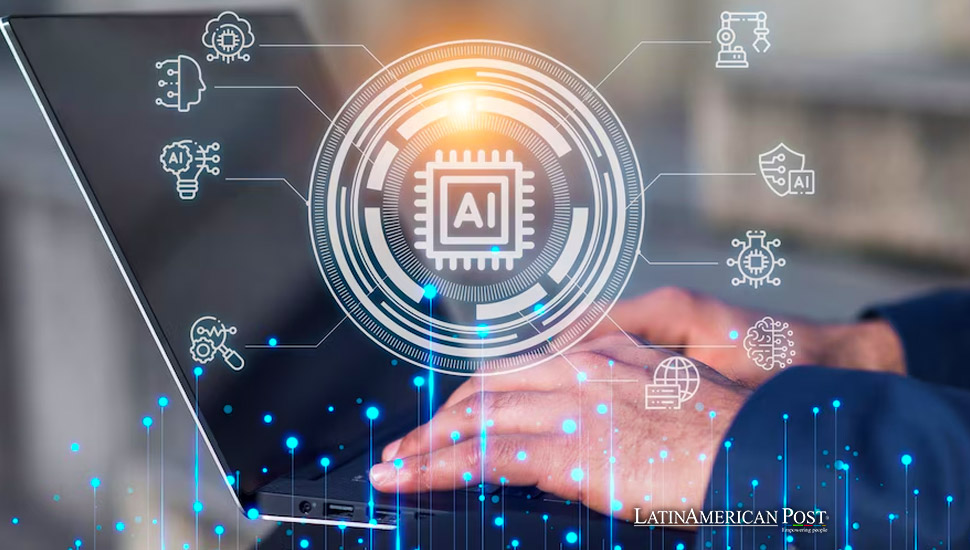2.3% of Jobs in Mexico at Risk of AI Automation

The International Labor Organization (ILO) predicts that AI will influence 35% of jobs in Mexico, potentially automating 2.3%. However, AI may also create new opportunities, increasing productivity and transforming the job market.
The International Labor Organization (ILO) has released a report revealing that the rise of artificial intelligence (AI) will influence 35% of jobs in Mexico. According to the study, products like ChatGPT are expected to fully automate 2.3% of jobs in the country. However, the report also forecasts that AI will create more job opportunities than it will eliminate, significantly transforming the labor market and inspiring hope for new employment prospects.
The widespread adoption of generative AI in the business sector is projected to significantly boost productivity in 14% of currently available occupations. This potential increase in productivity, as indicated by a United Nations-affiliated entity, is a positive aspect of AI’s influence on the job market. However, the effects of AI remain uncertain in 18% of jobs, leaving room for further analysis and understanding.
Contrary to common fears, companies still need to replace employees with AI. Instead, they are cutting thousands of jobs in the race toward more incredible technological innovation. The ILO’s projections are part of the report “Generative AI and Jobs in Latin America and the Caribbean: Is the Digital Divide a Buffer or a Bottleneck?” produced in collaboration with the World Bank. This study provides a comprehensive overview of how AI might reshape the job market in the region.
The research reveals that 26% and 38% of regional jobs could be exposed to generative AI. While 14% of these jobs could see increased productivity due to this technology, only 5% are at risk of complete automation. The ILO emphasizes that the benefits of AI are distributed equally across gender and age. It further notes that formal jobs in urban areas, occupied by workers with higher incomes and education, are more likely to be transformed. “Salaried and self-employed workers, such as salespeople, architects, educators, or personal service providers, are more likely to benefit from the transformative effects of generative artificial intelligence,” the report states.
Addressing the Digital Divide
The ILO warns that the digital divide constrains the potential benefits of AI in the labor sector. This gap could prevent 17 million Latin American workers from increasing their productivity through AI. This figure represents nearly 50% of Latin American and Caribbean employees.
“In a region where growth is low, inequality remains unacceptably high, and one in four households still lives in poverty, it is crucial to improve productivity and job quality,” explains William Maloney, the World Bank’s Chief Economist for Latin America and the Caribbean. He asserts that digital technologies, including AI, can offer new solutions to this issue. “To leverage these opportunities, it is vital that countries invest in connectivity and skills,” he adds.
The ILO has issued several recommendations to bridge the gap between equitable AI adoption and the use of technology to enhance worker performance. It advises implementing public policies to ensure digital resource infrastructure can operate effectively. The organization also suggests reviewing social protection systems to ensure the transition benefits the entire population. Companies and government authorities are encouraged to establish lifelong learning programs so that employees can develop and strengthen skills related to technological advancements.
Ana Virginia Moreira Gomes, the ILO’s Regional Director, emphasizes that effectively managing the influence of generative AI requires robust and inclusive social dialogue. By fostering meaningful conversations between policymakers, industry leaders, workers, and unions, we can ensure that the transformative power of technology is harnessed responsibly, mitigating the risks associated with technological change.
As the region navigates the rapid advancement of AI, it is crucial to address the challenges and seize the opportunities presented by this technology. The urgency of balancing AI’s potential to increase productivity and create new jobs with the need to mitigate the digital divide and ensure that all workers have the skills and support necessary to thrive in the evolving job market cannot be overstated.
AI’s Potential and Risks in the Labor Market
AI’s transformative potential in the labor market cannot be underestimated. The technology’s ability to increase efficiency and productivity offers significant advantages for businesses and workers alike. However, the risks of rapid technological change, including job displacement and increased inequality, must be carefully managed.
The ILO’s report highlights the importance of a balanced approach to AI adoption. While the technology promises to enhance productivity in many occupations, it threatens job security for specific roles. Ensuring that the benefits of AI are widely distributed requires targeted interventions and policies that address the particular needs of different sectors and worker groups.
Investment in education and training is critical to preparing the workforce for the changes brought about by AI. Lifelong learning programs and upskilling initiatives can help workers adapt to new technologies and remain competitive in the job market. Additionally, improving digital infrastructure and connectivity is essential to ensure that all workers, regardless of location or socio-economic status, can access and benefit from AI advancements.
Preparing for the Future of Work
The rapid adoption of AI and other digital technologies is shaping the future of work in Mexico and Latin America. As these technologies continue to evolve, developing strategies that promote inclusive growth and ensure that all workers can participate in and benefit from the digital economy is essential.
Policymakers, industry leaders, and workers must collaborate to create an environment that supports innovation while safeguarding workers ‘ rights and well-being. By fostering a culture of continuous learning and adaptability, the region can better navigate the challenges and opportunities presented by AI.
The ILO’s recommendations provide a roadmap for managing the transition to an AI-driven labor market. By investing in digital infrastructure, promoting equitable access to technology, and supporting lifelong learning, Mexico and other Latin American countries can harness AI’s potential to drive economic growth and improve the quality of life for all workers.
AI’s impact on Mexico’s job market is complex and multifaceted. While the technology offers significant opportunities for increased productivity and job creation, it also poses challenges that must be addressed to ensure a fair and inclusive transition.
The ILO’s report underscores the need for a balanced approach to AI adoption, prioritizing investment in education, training, and digital infrastructure. By working together, policymakers, industry leaders, and workers can create a future where all share the benefits of AI and the risks are effectively managed.
Also read: Chinese Company Vessel Modular to Build Futuristic Modular Homes In Mexico
As Mexico and the broader Latin American region embrace AI’s possibilities, it is essential to remain vigilant and proactive in addressing the challenges. Through inclusive dialogue, targeted policies, and continuous investment in skills and infrastructure, the region can build a resilient and dynamic labor market that thrives in the age of AI.




